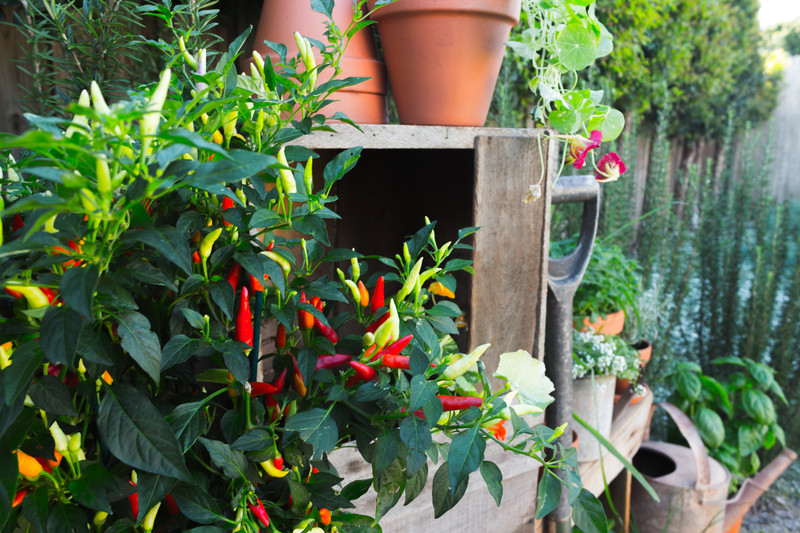The Edible Garden
December is the month when things really get going in the vegetable garden. You will begin to enjoy the rewards of your abundant harvest. Planting can continue in most areas just ensure a good supply of water and fertiliser as growth will be rapid.

December is the start of the true hot summer heat meaning now is the perfect time to plant out different varieties of capsicums, chilli, zucchini, corn, kale, leek, celery, cucumber, eggplant, lettuce, okra, spring onion, pumpkin & advanced tomatoes.
Now's the time to sow beans, carrots, spring onion, parsnip, radish, silver-beet, swede & turnip seed.If sowing brassica seed over the summer months choose an open position which, benefits from afternoon shade as this will help stop them bolting to seed as the warmer months approach. Protect new seedlings from cabbage white butterfly by using Eco oil or food grade diatomaceous earth, both are low toxic and organic control methods or wait and plant seedlings in late March.


What to do this month
- Roses will benefit from an application of Sudden impact for roses; this amazing fertiliser will ensure a wonderful flower display and less disease
- Mulch sweetcorn and tomatoes and feed with Potash as fruit develops
- Control leaf eating grubs on vegetable crops with Yates success or Tomato Dust.
- Add a wetting agent to pots and hanging baskets to help avoid them from drying out as quickly
- Spray roses to control black spot and pick up fallen leaves around the base.
- Keep a watch for aphids & hose off and then apply Eco oil
- Feed fuchsias and geranium with a potassium enriched fertiliser.
- Spray apples, pears and hawthorns with Yates Success to control pear and cherry slug. If you don't want to spray, dust with wood ash.
- Harvest peas and other summer veggies regularly so they produce more crops.
- Cut back and feed annual flowers.
- Control passion fruit leaf hopper with Yates Mavrik insecticide.
- Now is a good time to plant up pots and hanging baskets
- Keep deadheading roses and water deeply to ensure a second flush of blooms.
- Trim back any flowering shrubs that have finished; this will encourage new growth over summer for next year’s flowers.
- Remove lower leaves on tomato's to reduce soil borne disease.
- Watch for rust on raspberries, and spray with a copper based spray. Avoid overhead watering
- Top up your gardens with mulch to have them looking great and to help with water retention.

What You Need to Know
Shot Hole Disease is currently affecting many trees and is often mistaken for pest damage due to its appearance. However, this issue is actually caused by a fungal infection, not insects. The disease typically appears in spring as purplish or reddish spots on buds, leaves, and shoots. On young leaves, the spots often have a narrow yellow or light green margin. As the spots grow, their centers turn brown and can drop out, leaving behind characteristic holes.
To prevent and manage Shot Hole Disease, avoid overhead watering during the growing season, as moisture on the leaves encourages fungal spread. For effective treatment, apply a suitable fungicide while trees are dormant, before the buds begin to swell.

